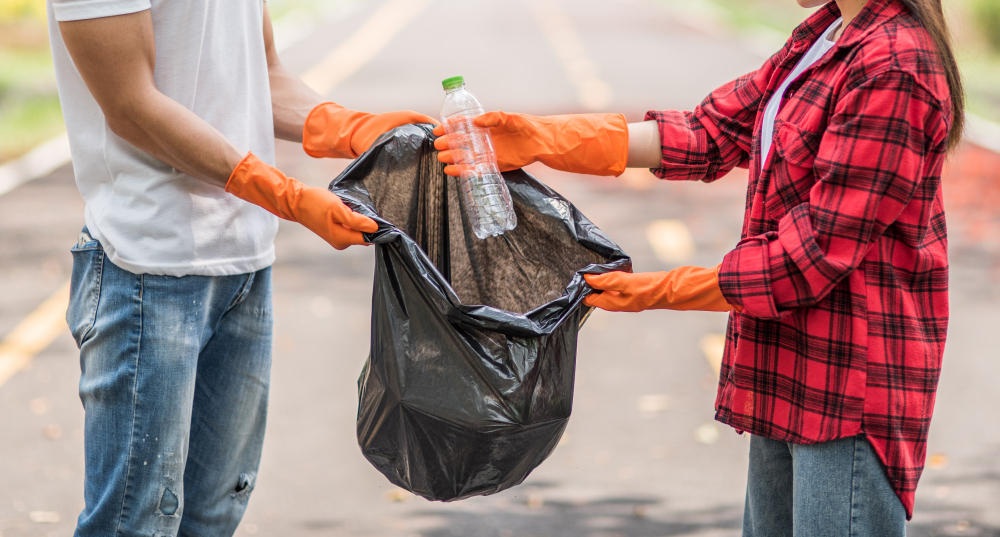How Improper Waste Management Leads to Pest Problems in Condominiums
October 24, 2024

Living in condominiums has become a popular choice, especially in urban settings where space is at a premium and convenience is essential. However, the rise of shared residential spaces brings unique challenges, with pest infestations being a major concern. One of the key contributors to pest issues in condominiums is improper waste management and disposal. When waste disposal is not properly handled, it creates the perfect environment for pests to thrive, disrupting the comfort and hygiene of residents.
Let’s delve into how improper waste disposal leads to pest problems in condominiums and explore ways to mitigate these risks.
Understanding Waste Management
Waste management encompasses the collection, transportation, treatment, and disposal of waste. In a condominium setting, this includes everything from segregating waste at the household level to the organized disposal and recycling waste. Effective waste management is essential in communal living environments, as it helps maintain hygiene, prevents land pollution, and reduces the likelihood of pest infestations, and keeps natural resources safe for human consumption.
The Big Difference of Proper and Improper Waste Management
Effective Waste Management:
Proper waste management ensures that waste is handled and disposed of in a manner that discourages pests from gathering and minimizes harm to the environment. Key practices include:
- Segregation of Waste: Separating waste into categories, such as biodegradable and hazardous substances, helps reduce the accumulation of food waste that attracts pests.
- Sealing Trash Properly: Using well-sealed containers to store garbage prevents odors from attracting pests like rats and cockroaches.
- Regular Collection: Frequent waste collection helps prevent trash from piling up, reducing the risk of pests.
- Clean Disposal Areas: Ensuring that communal trash bins, chutes, and disposal points remain clean prevents spillage and eliminates potential breeding grounds for pests.
Improper Waste Management:
On the flip side, poor waste management especially non recyclable waste creates a fertile environment for pests to thrive. Examples include:
- Exposed Food Waste: Leaving food scraps unsealed invites pests such as rodents, ants, and cockroaches.
- Overflowing Trash Bins: When garbage bins are full and not emptied regularly, they provide easy access for pests to find food and shelter.
- Lack of Waste Segregation: Mixing organic waste with hazardous waste creates a perfect habitat for pests, offering them food, water, and nesting materials.
- Neglected Disposal Areas: Unmaintained garbage chutes or communal trash points attract pests like flies, rodents, and cockroaches.
Improper solid waste management can lead to environmental hazards like land and air pollution, alongside the significant health risks posed by pests.
The Impact of Ineffective Waste Management on Pest Control

Food Residue Lures Pests
Improper waste disposal often means that food scraps are left in unsealed trash bins, drawing pests like cockroaches, flies, and rodents. These pests not only feed on the waste but also bring diseases, which can harm human health.
Overflowing Garbage Bins
Shared spaces such as hallways and parking areas in condominiums can become infested with pests if trash bins overflow. This is particularly concerning in areas with poor waste disposal practices, as pests can easily access food and shelter.
What to do? Implement a strict waste collection schedule, ensuring that bins are regularly emptied and never allowed to overflow.
Inadequate Waste Separation
When organic waste is mixed with hazardous waste, it creates an ideal environment for pests. Leftover food combined with paper or cardboard offers both food and nesting materials for pests, worsening issues like air pollution and water pollution.
What to do? Condominium management should establish clear guidelines for waste segregation, educating residents on the importance of separating organic waste from recyclables.
Neglected Garbage Chutes
Without regular cleaning, garbage chutes can accumulate food particles, turning them into pest breeding grounds. This also contributes to air pollution and land pollution, as decaying waste releases harmful gases.
What to do? Regularly clean and maintain garbage chutes to eliminate any build-up of organic matter that might attract pests.

Unsanitary Waste Disposal Locations
Communal disposal points can become havens for pests if not properly maintained. Leaky bags, spilled food, and unsanitary conditions provide all the necessities pests need to thrive.
Improper waste disposal affect not only the condominium but also the environment, leading to contamination of water pollution, worsening of greenhouse gases, and further degradation of landfill sites.
What to do? Schedule regular cleaning for communal waste areas, use bins with secure lids, and encourage responsible waste disposal practices among residents.
Insufficient Community Awareness on Waste Management
Poor community waste management, often stemming from a lack of awareness, can lead to widespread pest problems. When residents don’t follow proper waste disposal protocols, it affects the entire building, leading to pest infestations and environmental issues like the overflowing of landfill sites and improper waste disposal affect since surrounding areas absorb harmful chemicals, and even cause natural disasters.
What to do? Public awareness campaigns and educational workshops can inform residents about the importance of proper waste disposal, encouraging community-wide efforts to reduce pest issues and limit the environmental impact.
Conclusion
Improper waste generation and improper disposal not only attracts pests but also poses serious risks to human health, contributing to issues like air pollution, water pollution, soil contamination, and landfill site. In a condominium setting, where residents share common spaces, it’s crucial to implement effective waste management strategies, such as regular waste collection, proper waste segregation, and cleanliness in disposal areas.
By addressing improper waste disposal, condo residents and management can create a safer, healthier, and pest-free environment for everyone while reducing environmental harm.
If pest issues have already become a concern in your condominium, Environet Pest Control is here to help. Contact us today for professional pest management services tailored to your needs.

For more information on Vista Land’s developments nationwide, visit

